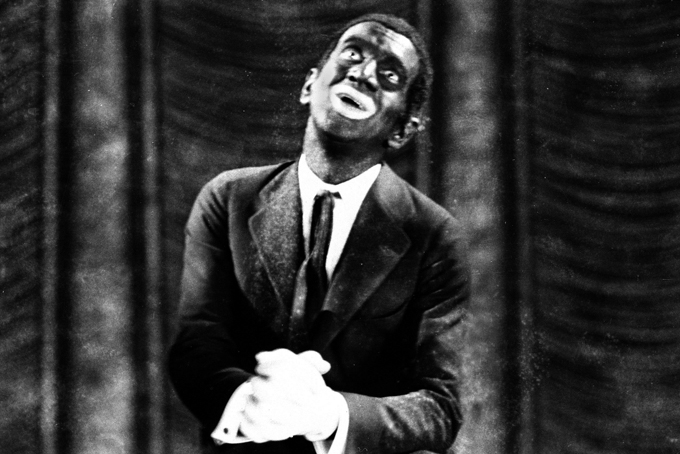
This 1927 image originally released by Warner Bros., shows Al Jolson in blackface makeup in the movie “The Jazz Singer.” (AP Photo/Warner Bros.)
by Leanne Italie
Associated Press Writer
NEW YORK (AP) — Is donning blackface to dress up as a favorite TV character ever OK for Halloween?
How about a bloody hoodie and blackface for a costume riff on the slain teen Trayvon Martin, or full-on minstrel at a splashy Africa-themed party for the fashion elite in Milan?
Each of those costumes made headlines this Halloween season. And the answer to each, African studies and culture experts said, is never.
“The painful history of minstrelsy is not that long ago for us to think that now, somehow, we can do it differently or do it better,” said Yaba Blay, co-director of Africana Studies at Drexel University in Philadelphia.
This Oct. 1, 2013 file photo shows actress Julianne Hough at the 20th Annual “FFANY Shoes on Sale” Gala presented by QVC and FFANY in New York. (Photo by Charles Sykes/Invision/AP, File)
Julianne Hough found that out the hard way. She apologized on Twitter over the weekend amid criticism for darkening her skin for a costume as Crazy Eyes from “Orange is the New Black” at a Hollywood bash.
Hough explained on Twitter: “I am a huge fan of the show Orange is the New black, actress Uzo Aduba, and the character she has created. It certainly was never my intention to be disrespectful or demeaning to anyone in any way. I realize my costume hurt and offended people and I truly apologize.”
There’s a fine line between mockery and tribute — and it’s a line that blackface has the power to obliterate, said Marita Sturken, professor of media, culture and communication at New York University.
“It’s never something very simple, and if you’re going to don a costume and put on a Black face there’s no possibility of nuance there,” she said. “It doesn’t matter that it was a character from a TV show. That doesn’t get her off the hook. If she’s going to put some substance on her face, that constitutes blackface and this incredibly complicated history gets evoked.”
Historically, blackface emerged in the mid-19th century, representing a combination of put-down, fear and morbid fascination with black culture, said Eric Lott, an American studies professor at City University of New York’s graduate center. Among the most prominent examples: Al Jolson and Eddie Cantor.